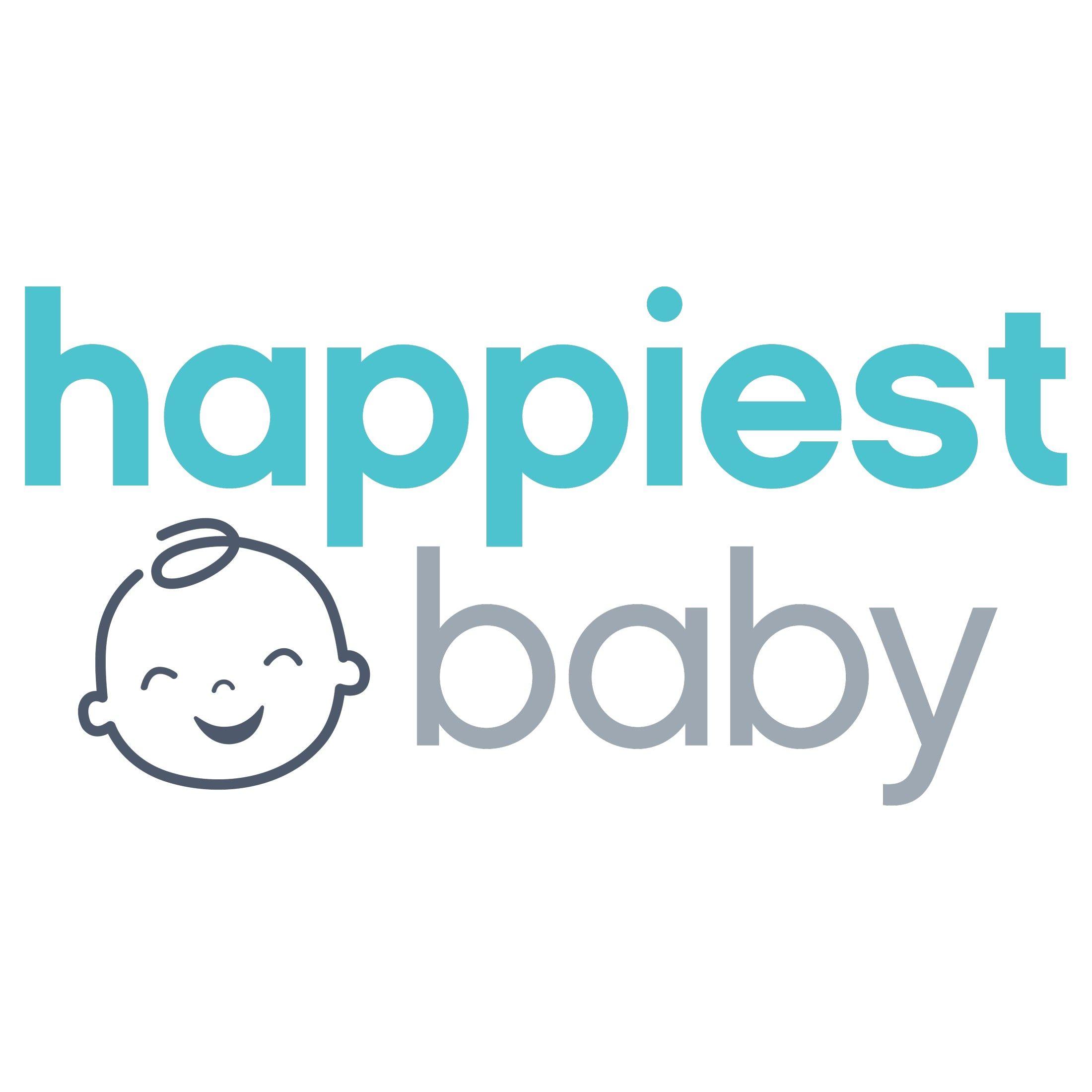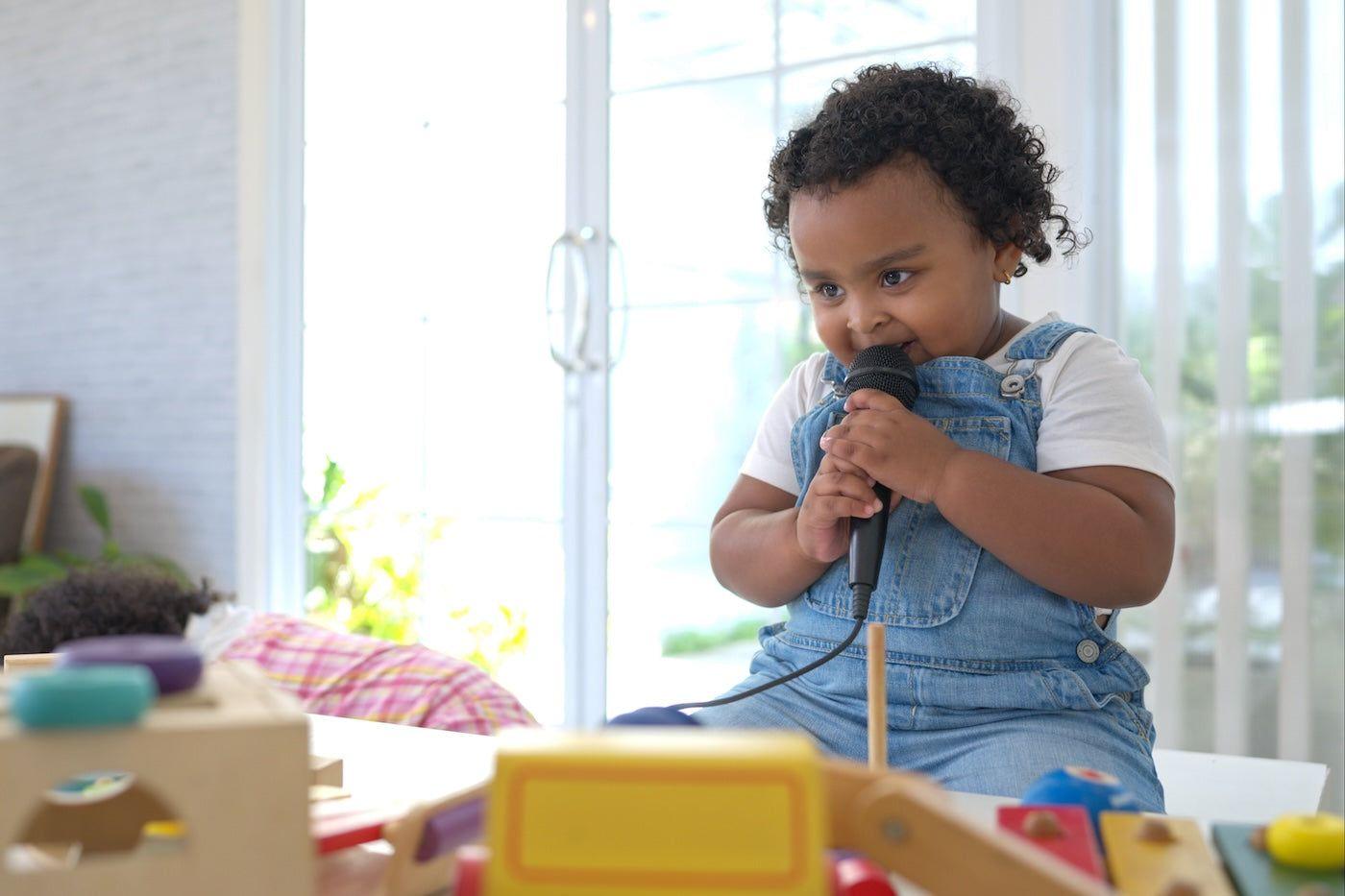TODDLER
What's "Normal" Talking for a 2-Year-Old?
Here's what to expect at 24 months.

Written by
Happiest Baby Staff

SHARE THIS ARTICLE
PARENT PICKS
Bestsellers
TODDLER

Written by
Happiest Baby Staff

SHARE THIS ARTICLE
Bestsellers
If you have a 2-year-old or a soon-to-be 2-year-old, chances are your home is filled with giggles, grunts, and growing chatter. Maybe your toddler’s asking for "more banana" or pointing out every dog they spot on a walk. Or perhaps they’re still mostly using gestures and a few favourite words. Either way, you might be wondering: What is 'normal' talking for a 2-year-old?
Good news: There's a lot of variation in how language develops at this age. So, before you start worrying about how many words your neighbour’s toddler is saying, let’s explore what speech and language typically look like at 2 years old—along with a few signs it might be time to speak to your GP or health visitor.
By the time that birthday cake is topped with two candles, most toddlers have at least 50 spoken words in their vocabularies, and many are already combining two or more into short phrases, like "more milk" or "go park."
But here’s the thing: The range of what’s “normal” is huge. Some 2-year-olds are saying nearer to 100 or even 300 words, while others are still warming up their verbal engines—and that can be completely fine! In fact, large studies of toddler vocabulary show just how wide that range can be. The Wordbank Project, which gathers data from thousands of children, found that the average 2-year-old says about 200 to 300 words.
What’s most important isn’t hitting a certain number—it’s seeing that your little one is making progress, experimenting with new words, and moving towards combining them. That’s the sweet spot we’re aiming for.
By now, your toddler is probably using words to label the people and things they love: "ball," "mum," "lorry," "biscuit." But they’re also beginning to express wants and feelings: "mine," "no," "all done!" (Let’s be honest, "no" might be a top pick!)
You’ll likely hear your little one mixing and matching words: "Daddy go work," "more book," or "me do it!" These short phrases are a big step—they show your toddler is starting to understand grammar, even if they haven’t mastered all the rules yet.
And yes, those early words might be adorably muddled. "Wawa" for water, "nana" for banana—it’s all part of the journey. Your little one’s mouth is still learning how to shape all those sounds, which is why many 2-year-olds are only about 50% understandable to adults. Even if you have to play a bit of a guessing game, your child is communicating!
Even as their vocabulary grows, 2-year-olds still rely on body language, facial expressions, tone, and gestures to get their point across. They might point, grunt, pull you by the hand, or throw in a big dose of drama to make themselves heard.
You might notice your toddler:
All of these are valid communication tools, helping build the foundation for full-blown conversation. When your child says "juice!" while pointing to the fridge, try expanding on it: "You want some juice? Let’s get your juice." Modelling richer language like this helps them learn more complex ways to speak.
Development isn’t one-size-fits-all, but the CDC and American Academy of Pediatrics outline some things many 2-year-olds can do around this age. For instance, most toddlers can:
And remember: If your child isn’t doing every single one of these things, it doesn’t necessarily mean there’s a problem. Some toddlers take a little longer with speech while they focus on other skills (like climbing everything in sight!).
Here’s a toddler truth: Even if your little one is saying lots of words, you might only understand half of them. That’s totally normal. Most 2-year-olds are still figuring out how to coordinate their tongue, lips, and brain to produce clear speech.
At this stage, you might notice:
Experts say around 50% of a toddler’s speech should be intelligible by age 2. That rises to about 75% by age 3. Until then, be patient. Try repeating what you *think* they said to reinforce the correct version: "Oh, you want the red ball?"
Even if your toddler isn’t saying much yet, they likely understand far more than they can say. By age 2, many toddlers can:
So even if they don’t yet say, "I’d like a snack, please," they know what you mean when you ask, "Shall we get a snack?" Their growing understanding, responsiveness to questions, and engagement with books are all signs of healthy language development.
All children develop at their own pace, and many late talkers catch up on their own. But if something feels off, trust your instincts. According to the CDC, AAP, and ASHA, it might be worth having a word with your GP or a speech and language therapist if your child:
There’s no harm in asking for advice—early support can be incredibly helpful. Your GP may refer you for a hearing test or to a speech and language therapist for a closer look.
Every toddler takes a unique path when it comes to learning language. Some are singing nursery rhymes already, while others are just beginning to string a couple of words together—and both are perfectly normal.
If your child is showing signs of progress—understanding more, experimenting with new words, combining gestures and speech—that’s a great indicator they’re on the right track. Keep chatting, reading, and singing with them. You’re their favourite teacher—and their favourite person to talk to
Before long, you’ll be hearing all about their day at nursery. But for now, enjoy the sweet sound of "mummy up!" and "me do it!"—these are the building blocks of brilliant communication.
***
REFERENCES
Disclaimer: The information on our site is NOT medical advice for any specific person or condition. It is only meant as general information. If you have any medical questions and concerns about your child or yourself, please contact your health provider. Breastmilk is the best source of nutrition for babies. It is important that, in preparation for and during breastfeeding, mothers eat a healthy, balanced diet. Combined breast- and bottle-feeding in the first weeks of life may reduce the supply of a mother's breastmilk and reversing the decision not to breastfeed is difficult. If you do decide to use infant formula, you should follow instructions carefully.